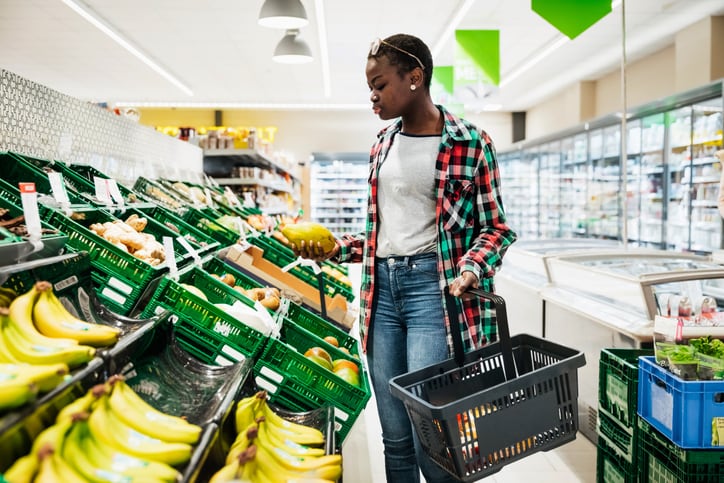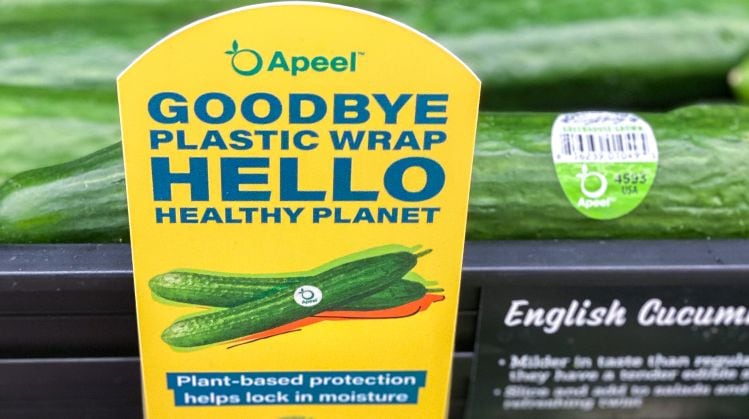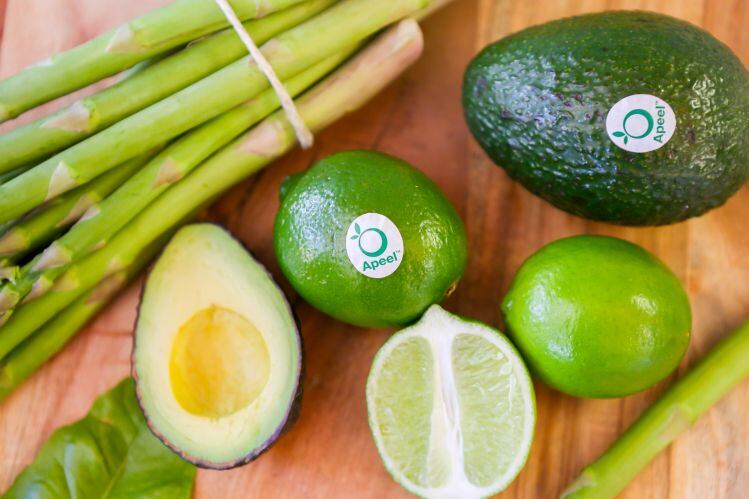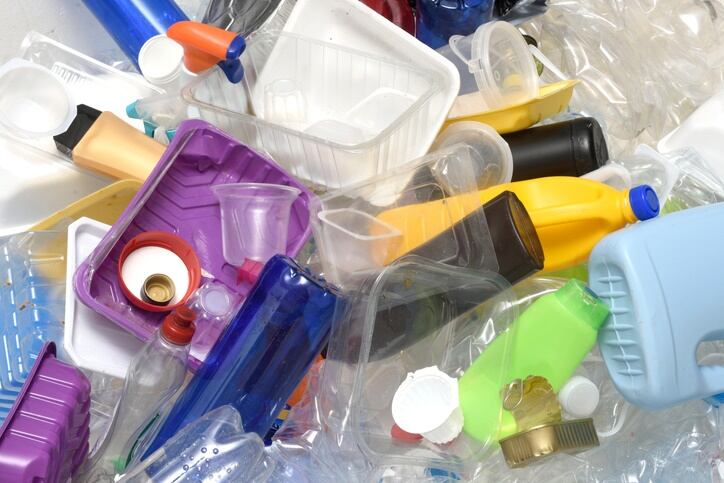Developed by the Swiss Federal Laboratories for Materials Science and Technology (Empa) in partnership with retailer Lidl Switzerland, the edible skin is made from pressed carrot residue that would otherwise be disposed of in biogas plants or directly onto the field.
“With the protective film, we not only reduce food waste and packaging material on a large scale but also extend the shelf life of the food at our customers’ homes,” said Torsten Friedrich, CEO of Lidl Switzerland, noting that the development is a milestone in the company’s history.
From farm to lab to retail
Produce from Swiss farms that does not meet cosmetic standards is juiced and reduced to a pulpy mash known as pomace. It is then washed, bleached and ground into a cellulose nanofiber solution that is sprayed onto fruits and vegetables.
“We believe that the coating creates an additional barrier that help to protect the moisture in the fruit or vegetable and thereby extends its shelf life,” Gustav Nyström, head of the Empa lab, told FoodNavigator-USA.
“With bleaching we found that the cellulose fibers were able to form a much denser film which we think may be beneficial for the application in food coatings.”
Empa’s preliminary study into the cellulose coating began in 2019 and was completed in Summer 2021, successfully demonstrating a delay in enzymatic browning in bananas of up to seven days. The thinly dispersed homogenous layer is nearly invisible and easily washed off, is non-toxic to consumers and could be supplemented with additives such as vitamins or antioxidants in the future.
Over the next two years, a main study – supported by the Swiss innovation agency Innosuisse – will continue to improve and control barrier properties, application and film formation and determine how to best upscale and adapt the technology for industrial integration. Upon validation, the coating will be implemented in 150 Lidle stores throughout Switzerland.
The rise of plant-based coatings
Empa is not the only lab developing plant-based coatings as a simple and cost-effective solution to preserve the post-harvest quality of produce along the supply chain.
Last year, scientists at the National Agri-Food Biotechnology Institute in India filed a patent for their wheat straw and oat bran composite, formulated to overcome cold chain challenges in the country. In trials, it was found to delay ripening and significantly reduce fruit weight loss and softening of Royal Delicious apples over a 30-day period without refrigeration.
Meanwhile, California-based Apeel Sciences – founded in 2012 with a grant from the Bill and Melinda Gates Foundation and a forerunner in developing edible skins from agricultural byproducts – continues to expand the footprint of Apeel-protected produce across retail in the US, Mexico, Peru, Costa Rica, Chile, the Netherlands, Spain and Kenya. Its coating is being applied as a second skin to a wide range of fruits and vegetables from apples, avocados and asparagus to cucumbers, pineapple and tomatoes.




